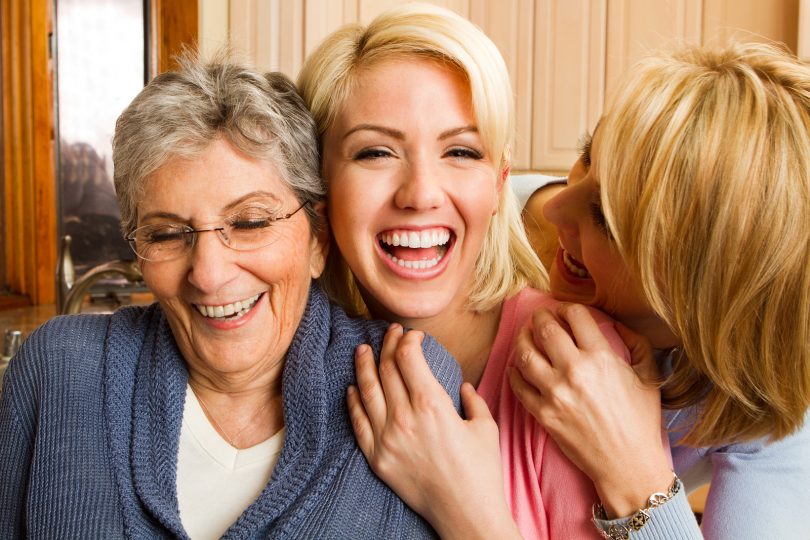Want to be as healthy in your 90s as you are in your 20s?
Well, it has to start right now.
“It’s all about prevention, no matter what decade you’re in,” said Dr. Renee Page, a women’s health specialist at Augusta University Health.
Your 20s: Thinking about baby
Most 20-year-olds aren’t ready to have a child. But within this decade, many women start to think about it. After all, your 20s are most likely when you meet a partner, and the next step can be starting a family.
So make it a priority to take care of your lady parts. If you don’t have one, find a good OB/GYN—ask your friends for referrals. If you’re sexually active, be vigilant about your annual screening. A Pap smear remains the very best cancer prevention tool available, able to identify even pre-cervical cancers when they are easiest to treat.
Developing a trusted relationship with an OB/GYN is important because you want a good physician-patient relationship when you’re ready to have a baby. He or she can counsel you on fertility options if needed—and most importantly provide that good prenatal care that’s so essential to not just your baby but also your own. “It’s a fact that African-American women in America have a significantly higher risk for maternal mortality, and we’re not exactly sure what the problem is,” said Page. “Pregnancy is a lovely life experience, but it is also a potentially life-threatening condition, so good prenatal care is very important.”
Your 30s: Gotta get screened
Consider it a rite of passage, but according to Page, your third decade of life is when diseases begin to emerge—and that’s true for both women and men.
So along with your OB/GYN, find a good primary care doctor (turn to that friend network again) who can provide regular checkups, look at your risk of disease and advise lifestyle modifications. “After all, it’s harder when you’re in your 60s to modify your lifestyle and make a difference,” said Page.
Modifications include eating right, exercising and quitting smoking—all of which can reduce your chance of developing high blood pressure, diabetes, knee and back pain, heart problems, and much, much more. Exercising and eating well are particularly important now since pregnancy (see your 20s) is a major risk factor for women becoming overweight or obese.
Your 40s: The cancer/heart question
Here’s when prevention gets a little more serious. This decade is likely when you should schedule your first mammogram—and depending on family history and other risk factors, you may need to begin having them every other year. Start with identifying your different types of breast cancer risk factors by taking this Healthy Breast Quiz.
It’s also time to talk about colon cancer and how to best prevent it. Again, diet and exercise play a role, with recent studies finding that processed foods are associated with a higher risk of colon cancer. “So your doctor may ask you how many fruits and vegetables you’ve eaten in the last couple of days. But I struggle too,” Page admitted.
Now is when women should educate themselves about the signs of heart disease, which can be different from what you might expect. Instead of crushing pain in the chest or shooting down the arm, women are more likely to experience upper gastric pain, like bad heartburn; shortness of breath; nausea/vomiting; and even back or jaw pain.
Your 50s: Be aware of other cancers
As women enter menopause, it can be easy to forget to make regular OB/GYN visits. But continue seeing your primary care provider, since certain cancers can be harder to diagnose at early stages, like ovarian or uterine cancers. If you have any kind of unusual bleeding in your urine, bowel movements or vaginal bleeding, don’t wait to see if it goes away. Schedule an appointment with your doctor right away to get it checked out. “Do it even if you feel silly,” said Page. “Early detection is always the best when it comes to cancer.”
Your 60s: The bones have it
As you comfortably settle into your menopause years, stay alert to your bone health. Menopause is when osteoporosis or bone loss tends to increase, which can lead to broken bones, surgery and a long healing process if you have a fall.
Your doctor can prescribe medications and calcium to help you keep the bone you have. Follow good fall prevention practices, including installing grab bars in the bathroom and tub or shower mats, removing slippery throw rugs, being cautious on stairs, ensuring there’s good lighting at night in case of midnight bathroom visits, and more.
Your 70s and beyond: Stay strong
Once you’ve made it to your 70s, keep up the good health by sticking to the advice mentioned above. And continue exercising. The good news is that even if you start exercising now, gentle weight-bearing exercise can still provide benefits like improving bone strength and preventing falls.
And prevention, after all, is what it’s all about.





